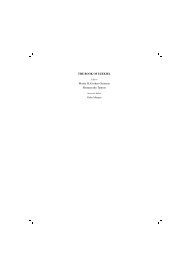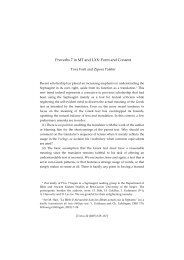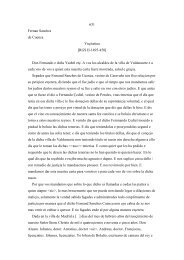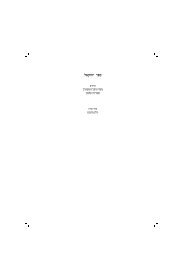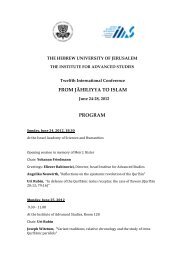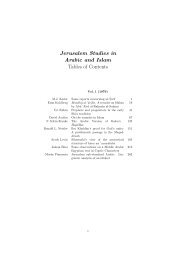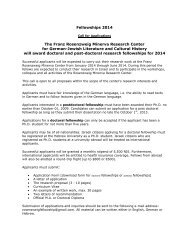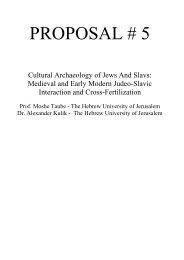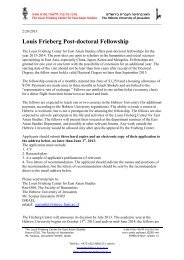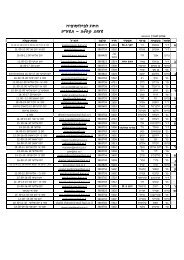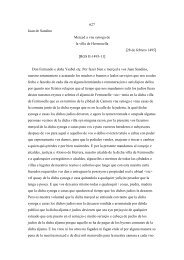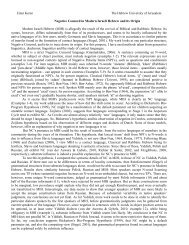Baber Johansen
Baber Johansen
Baber Johansen
Create successful ePaper yourself
Turn your PDF publications into a flip-book with our unique Google optimized e-Paper software.
5<br />
claims of autonomy. Therefore, MaÞmÙn tried to establish his ideological<br />
hegemony over the legal scholars, the judiciary and the traditionalists<br />
through imposing on them the dogma of the created character of the<br />
QurÞān, a doctrine held by the MuÝtazila and other speculative<br />
theologians. This policy was continued from 833-849 by MaÞmÙn’s<br />
successors. It finally failed because it met with stiff resistance among<br />
scholars and large parts of the city’s population. The failure of this<br />
attempt to regain ideological hegemony for the caliphs diminished the<br />
political status of speculative theology. The credibility of its claim, that<br />
ontology and cosmology are the key to true understanding of the relation<br />
between God and his creatures, lost its persuasiveness. Jurists and<br />
traditionists gained the high ground. 24 Van Ess, probably the world’s best<br />
historian of Muslim theology, comments on the outcome of this struggle<br />
in the following words:<br />
Consequently, it was not theology that took the lead of the<br />
sciences, as had been the case in medieval Christianity […].<br />
Jurisprudence became the principal discipline […] In Islam,<br />
the religious expertise remained in the hands of those who<br />
were later called the ÝulamÁÞ, the members of a class of<br />
scholars from bourgeois origins who resolved the daily<br />
problems of other bourgeois through their legal counsel and<br />
explained the belief to them by means of QurÞÁnic exegesis. 25<br />
IV. The Jurists (fuqahÁÞ)<br />
From that time on the jurists, the traditionalists and, increasingly, also the<br />
theologians, saw the caliph as a political leader who defends the religious<br />
and the political community against its external and internal enemies,<br />
preserves it through the application of the law and the protection of the<br />
cult, but they no longer acknowledged him as a religious guide of his<br />
subjects (imÁm al-hudÁ), a vessel of divine knowledge and a guarantee of<br />
salvation for the Muslims. 26 From the middle of the ninth century on, the<br />
caliphs lost much of their power of political decision making to the



